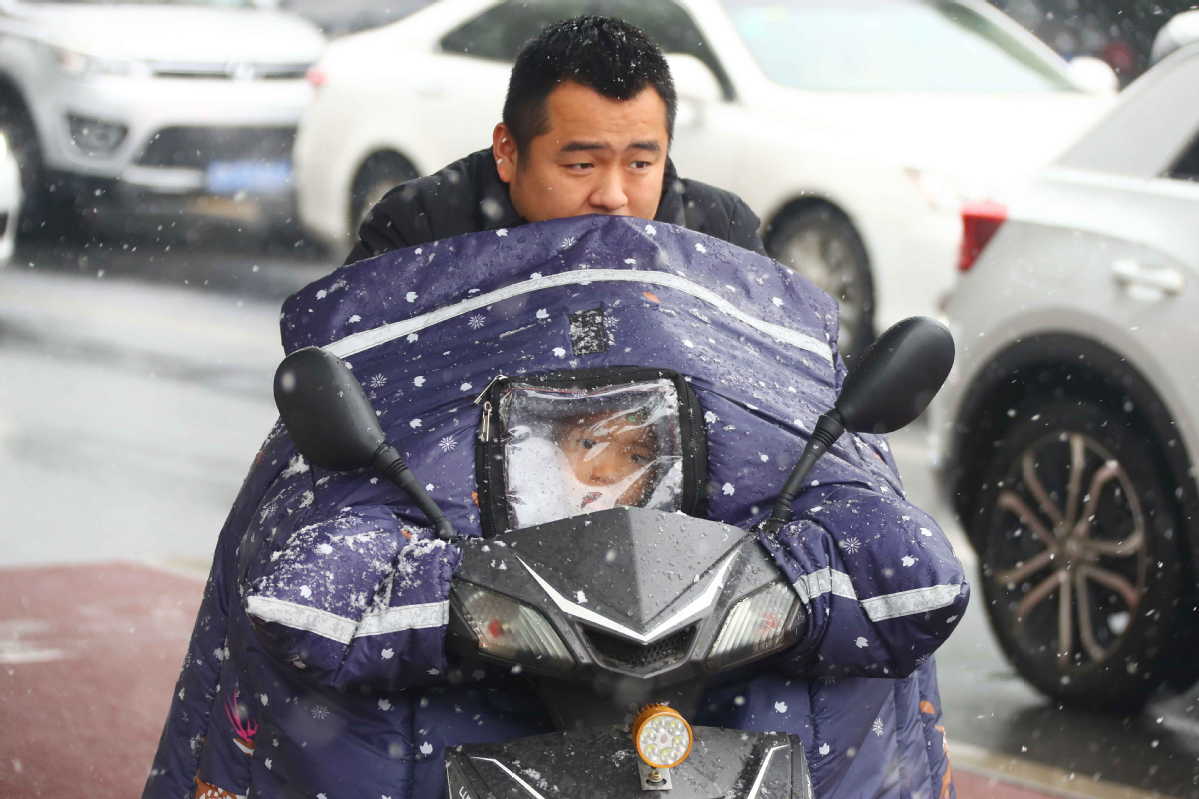Cold blast brings record low temperatures to 3 provinces

Meteorological center issues a nationwide blue warning as chilly weather spreads

The cold blast will continue across China, with Beijing recording -19.6 C on Thursday morning, the lowest temperature since 1966, meteorological authorities said.
Shandong, Hebei and Shanxi provinces also reported the lowest temperatures since their meteorological stations were built.
The National Meteorological Center said that on Friday, temperatures will drop by up to 10 C in East China, including the provinces of Anhui, Jiangxi and Zhejiang. Fujian province, in the southeast, and Yunnan province in the southwest are forecast to experience similar drops.
In Northwest China, South China and areas along the Yangtze, Yellow and Huaihe rivers, temperatures will drop by between 6 and 8 C, with strong winds.
The Beijing Meteorological Service said the capital is expected to record a low of about -10 C on Friday and Saturday, with temperatures on both days slow to rise. Chilly winds will make people feel colder than the recorded temperatures, it added.
In Northeast China's Jilin province, the lowest temperature is expected reach -32 C on Friday affected by cold air from Siberia.
The province's meteorological service issued a Grade IV emergency response to the cold air, the lowest of its four-tier ranking, and the provincial emergency management department urged authorities to guarantee sufficient supplies of coal, electrical power and water resources to combat the cold front.
In Jiangxi province, the rescue center has relocated more than 100 homeless people from train stations, squares and bridge culverts to rescue centers to ensure nobody is hurt by the cold. For those who would rather not be relocated, the centers are providing food, water and warm clothes.
The National Meteorological Center issued a nationwide blue cold warning on Thursday, the lowest level in its four-tier system. In December, two rounds of cold air that both lasted for about four days hit China, making temperatures in most areas lower than in normal years.
Song Lianchun, director of the National Climate Center, said that the colder winter was due to global warming and the La Nina phenomenon.
- Medical insurance fund records slight surplus in 2024
- Reception held in Macao to welcome Chinese New Year
- China launches Pakistani satellite, two others
- Former deputy head of China Tobacco under investigation
- An Italian calling Shanghai home
- Education Ministry approves 12 new higher education institutions




































